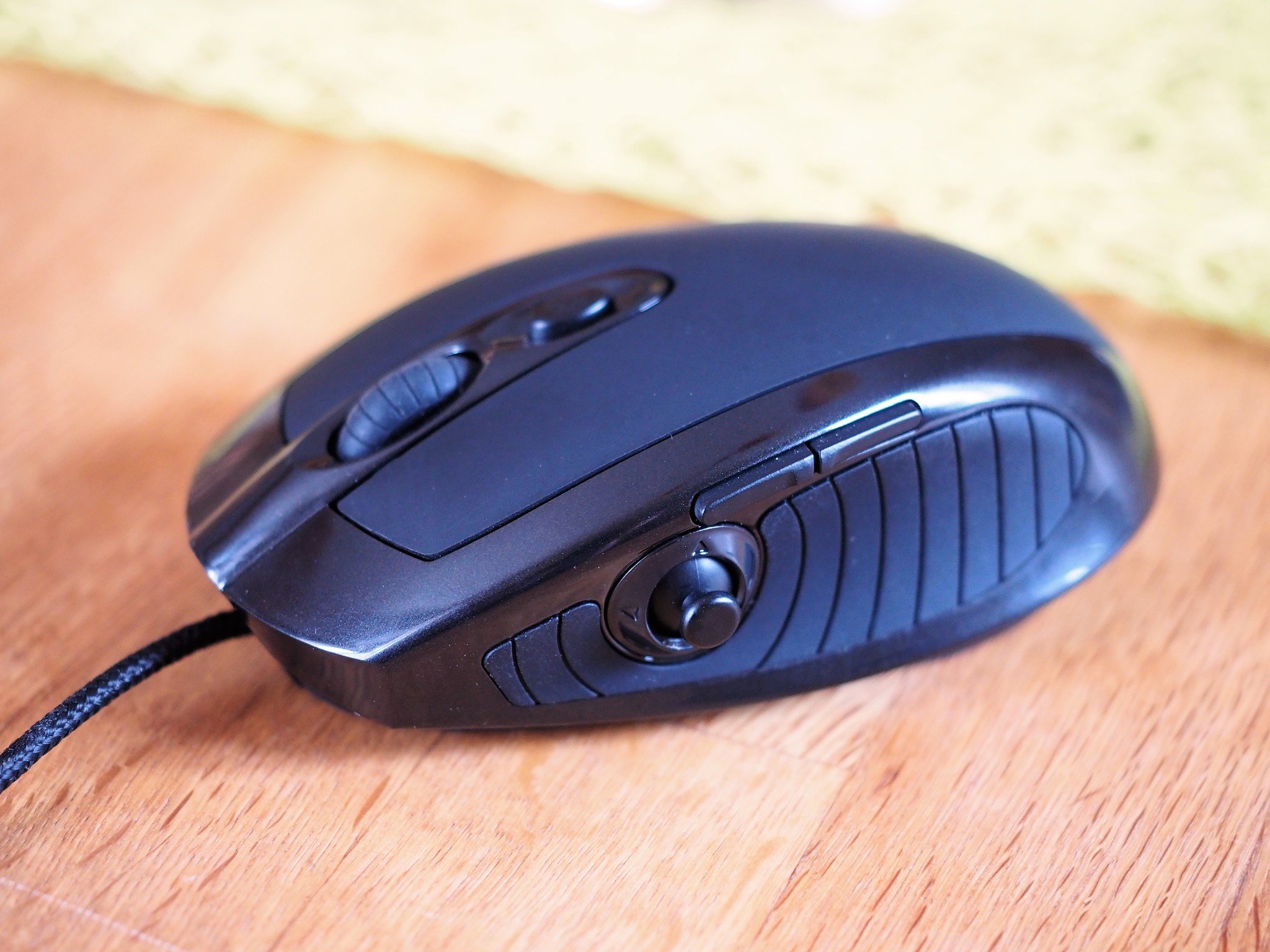The Lexip mouse, aimed both at gamers and 3D creative types, sports two "joysticks" that can be deeply configured to function in various ways. Where your thumb rests (with both left-handed and right-handed options available) is a joystick, similar to those you might expect to find on an Xbox controller. Additionally, the entire body of the mouse can be tilted forwards and back, from left to right, and also set up with either keybinds, or other controls.
After dozens of hours of use, I'm still struggling to see the point of this mouse, which not only comes with some harsh trade offs but seems to have been abandoned by the company that made it. I simply cannot recommend this mouse at this time, for various reasons.
Lexip 3DM Pro Specs
- Analog stick and directional tilt controls
- 3200 dpi laser
- 7 programmable buttons
- Rubber clickable scroll wheel
- Rubber sides
- Ceramic feet
The good
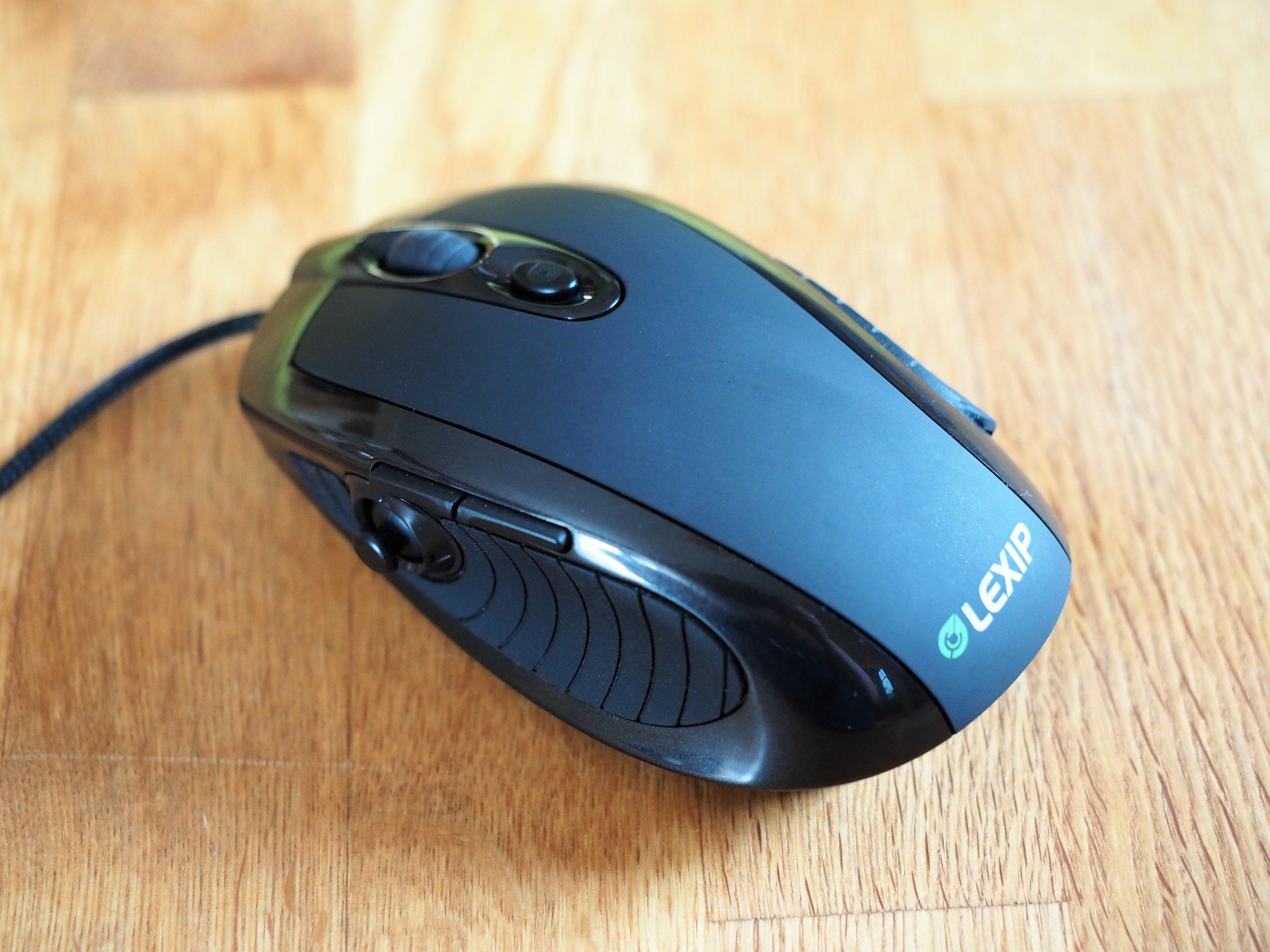
As far as mice go, the Lexip 3DM Pro is incredibly comfortable in the hand. It's on the smaller side compared to some other gaming mice out there, with rubberized panels on either side for some extra grip.
I'm quite picky when it comes to joysticks, but I came away quite impressed by the Lexip 3DM Pro's.
The shell itself is made of black gloss plastics which are smudge-prone, but at least easy to clean, and the click action feels satisfying and responsive. The mouse wheel also has a rubber texture, making it easy to push and pull, and offers a decent level of scrolling feedback.
As an Xbox fan with terrifying memories of the N64 gamepad, I'm quite picky when it comes to joysticks, but I came away quite impressed by the Lexip 3DM Pro's. Although results will vary hand to hand, for me, it fits perfectly where I would usually rest my thumb, further towards the end of the mouse. The stick has good action and has a nice level of resistance, although it's a little hard to know how long it will last with repeated use.
The mouse also sports an additional button below the scroll wheel, also configurable, complete with Gamer Certified RBG lighting, in addition to two side buttons above the joystick. The buttons on the side perhaps have more travel than might be necessary or efficient, but it's hardly a deal breaker.
Lexip managed to nail the basic fundamentals of mouse design, thankfully. But the product begins to unravel as you dive into its more unique features.
The bad
The Lexip 3DM Pro comes with a shell that can be tilted, activating additional commands. You can configure these per game, so for example, playing Forza, you could configure a tilt left to steer left and a tilt right to steer right. It also makes flight sims like Elite Dangerous a little more intuitive to play without the need for separate peripherals like a gamepad or flight stick.
However, I just personally found it to be incredibly unnatural feeling, and an attempt to reinvent the wheel.
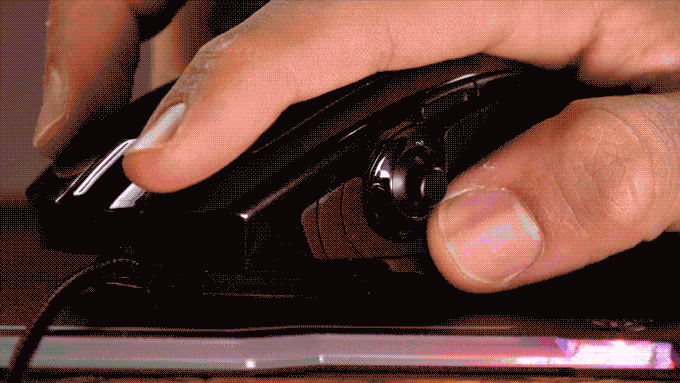
Even after short sessions of between 30 and 60 minutes squeezing my hand to grip and then rotating my wrist to activate the tilts, I found my wrist and thumb joints hurting. The forward tilt action also makes the middle mouse click harder to achieve, which makes the entire product feel confused as different parts of the design are fighting for attention. I have no idea why I would use this over a gamepad, a keyboard and mouse set up, or a real flight stick.
It could be that my hands are just screwed up from a couple of decades of guitar play, gaming, and blogging, but no other activities or controllers hurt my hand and wrists like this. It would be remiss of me to not mention it.
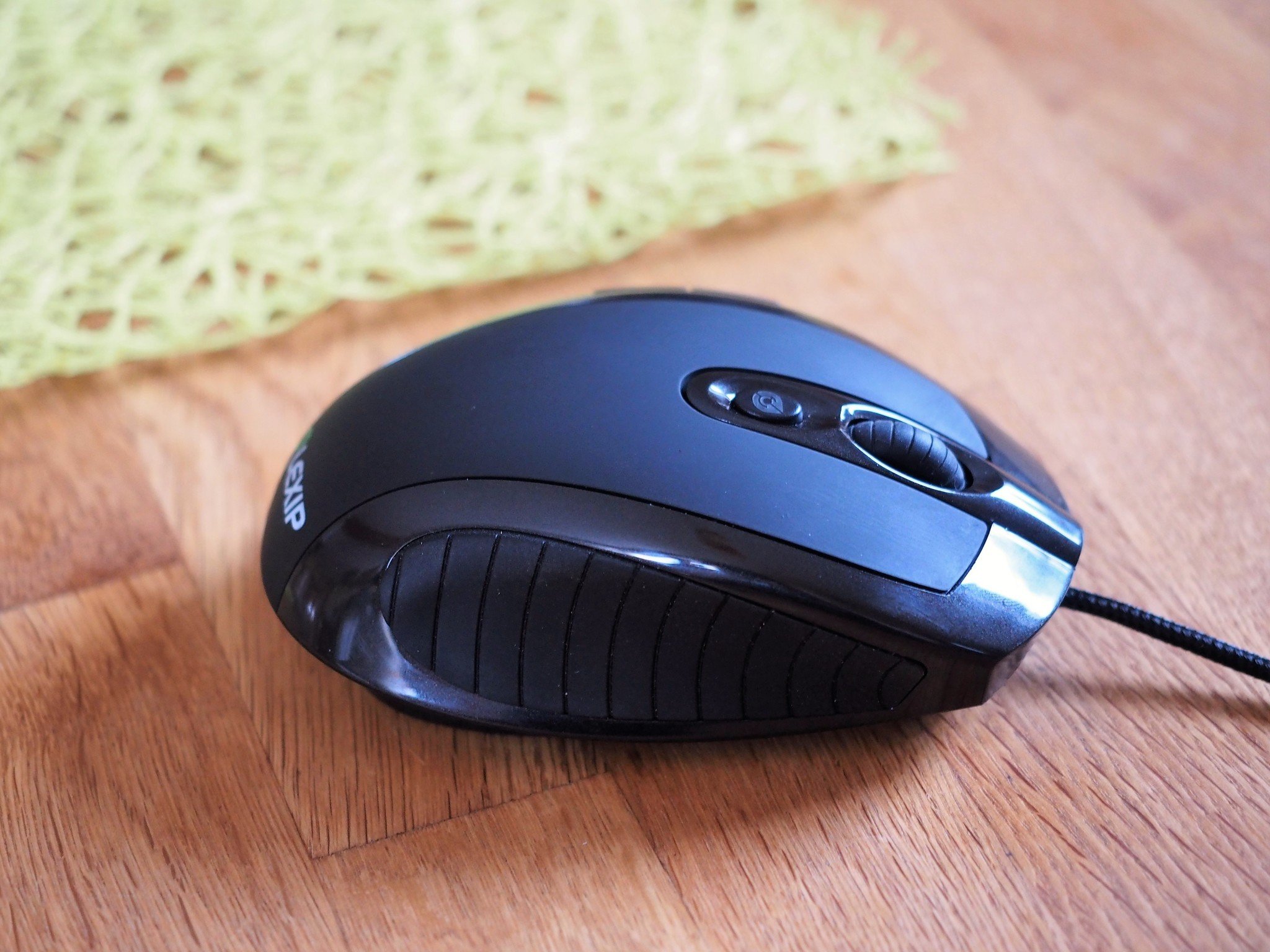
Additionally, in certain games, you simply don't want the tilt. It was pitched to me as a mouse for FPS gamers, but I can't imagine why you would ever want to sacrifice accuracy to jerk the mouse around in that way. When you tilt, it's almost impossible to not nudges the cursor around too, which just feels unintuitive.
When you tilt, it's almost impossible to not nudges the cursor around too, which just feels unintuitive.
Speaking of the cursor, the laser Lexip has opted for lacks versatility versus the other mice I currently use, including Razer's Hex mouse and Microsoft's Surface precision mouse, both of which I can use on my wood desk without any issues. Lexip's, on the other hand, seems to demand a mouse mat of some sort, which is a little annoying.
The final frustration comes in the form of Lexip's configuration panel, which is simply ugly and buggy compared to more polished solutions offered by established gaming companies. Lexip assured me that the software would improve over time, but it's hard to say whether or not Lexip's control panel will reach the level of quality found in Razer Synapse software, for example. That is if you can even download it.
The ugly
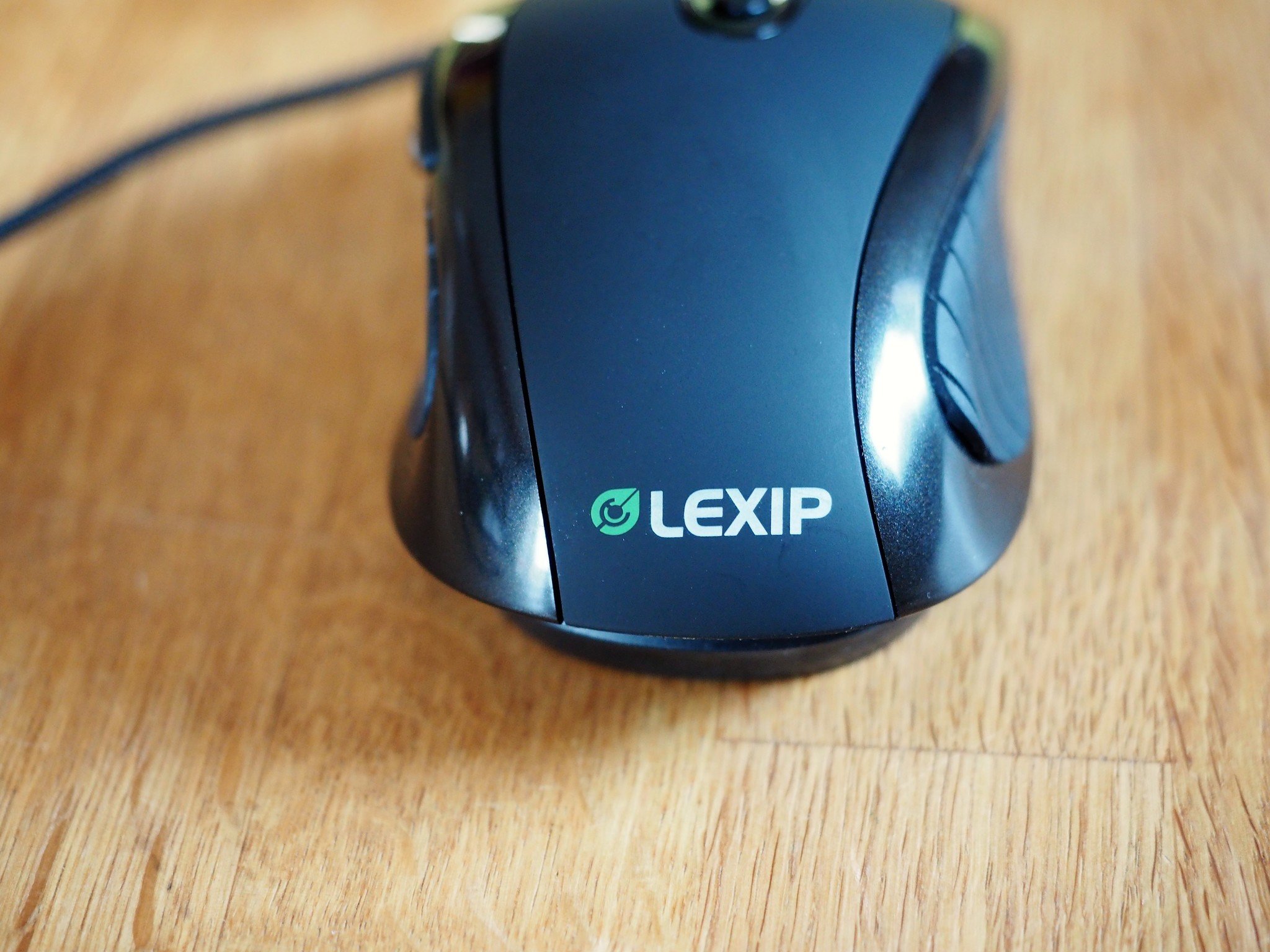
Since being sent this review unit, I switched PC from a Razer Blade to a Surface Book 2, as such, I needed to download the drivers and control panel software once again to get set up and continue using the mouse... however, the company's website no longer exists.
The websites listed on the Lexip 3DM Pro mouse itself, and the packaging, now redirect to the firm's Kickstarter page, as the company attempts to fund a new iteration of the very mouse I'm reviewing. I would be incredibly annoyed if I had purchased this, only to find Lexip was irresponsible enough to remove the software packages from the internet entirely. I have been told this is due to a technical error, but to redirect a website requires a deliberate action. The lack of support for existing customers reflects poorly on the company.
Odd future
PC gamers are always on the lookout to gain a competitive edge when it comes to PC accessories, and that desire for freedom has created a wide array of wacky products over the years. Lexip's tilt-capable joystick mouse seems like a solid concept, heaping on extra controls onto a single device could potentially free up the need for additional accessories. However, the execution in this particular version is far from commendable, but it doesn't really matter.
As of writing, it is incredibly hard to find a place where you can even purchase this product. It seems as though Lexip has abandoned it entirely, and gone all-in on a Kickstarter for an updated version. A cursory (get it? cursory? sorry) glance at the Kickstarter page seems to indicate that the only difference between the 3DM Pro and the new one is an upgraded sensor, which goes from 3200 dpi to 8200 dpi. Although I'm sure there are other refinements, but at this time, it's hard to know what they are.
Pros:
- Comfortable in the hand.
Cons:
- Tilt action is straining on the wrist.
- Sensor lacks versatility on different surfaces.
- Existing input methods are probably better.
- Lexip's website doesn't exist, so you can't download software.
With other refinements and fine tuning, I can see this sort of feature set being really awesome. Perhaps some of those will be expressed in the updated version, but for now, the 3DM Pro version will doubtless join a long list of forgotten inventions that attempted to solve problems that had either already been solved, or didn't really need solving.

Jez Corden is the Executive Editor at Windows Central, focusing primarily on all things Xbox and gaming. Jez is known for breaking exclusive news and analysis as relates to the Microsoft ecosystem while being powered by tea. Follow on Twitter (X) and Threads, and listen to his XB2 Podcast, all about, you guessed it, Xbox!
